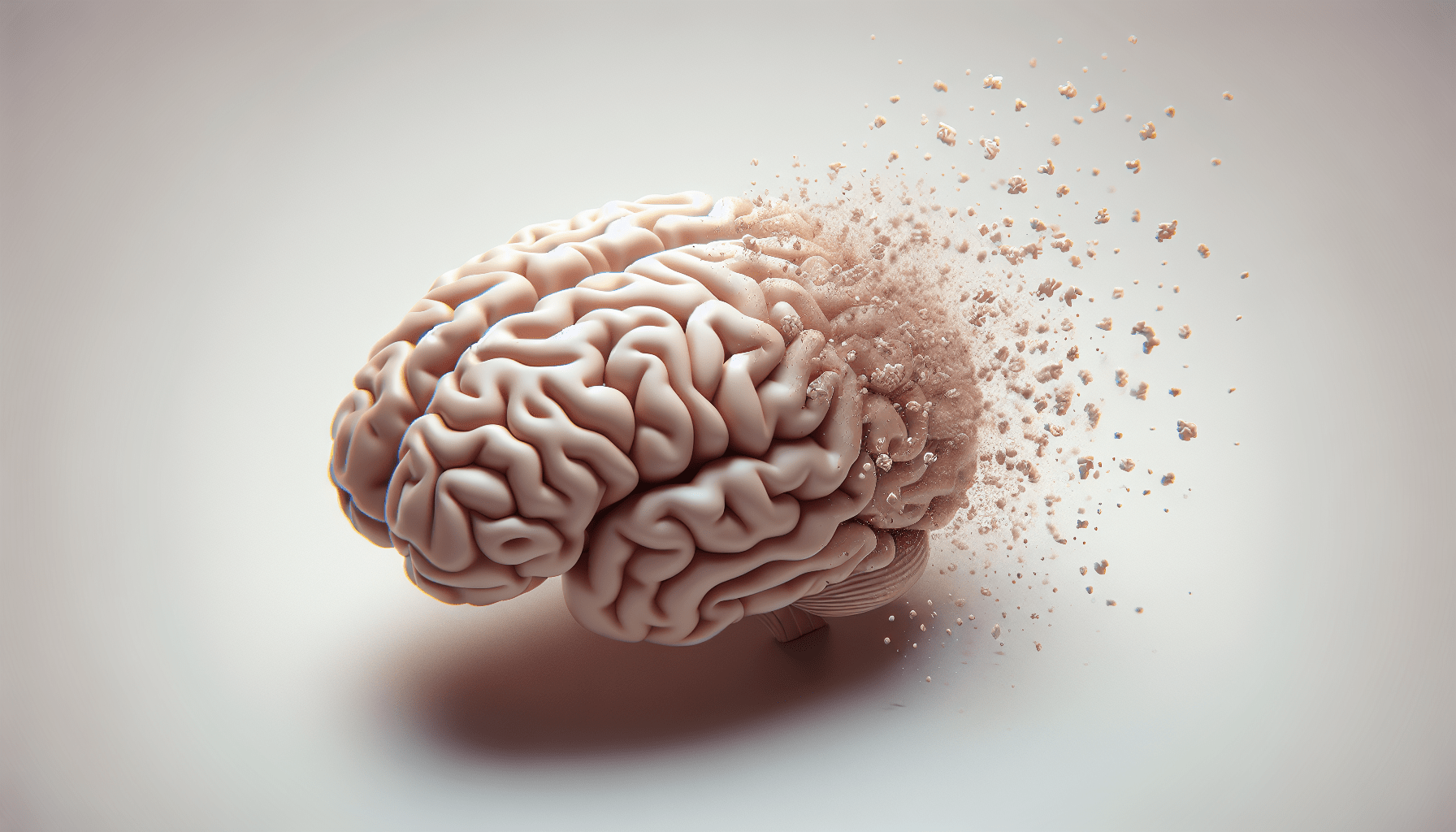You might notice occasional forgetfulness or difficulty concentrating and brush it off as typical aging. However, these seemingly minor lapses, known as subjective cognitive impairment (SCI), could be more significant than you think. Recent research suggests that SCI may be an early indicator of mild cognitive impairment (MCI), a condition that can precede dementia. By recognizing and addressing these signs early, you have the opportunity to take proactive steps in managing your cognitive health. Have you ever noticed subtle changes in your memory or thought processes and wondered if they could be an early sign of something more significant? You’re not alone; this concern leads us to explore the intriguing topic of subjective cognitive impairment and its potential as a precursor to mild cognitive impairment.
What is Subjective Cognitive Impairment?
Subjective Cognitive Impairment (SCI) refers to the self-perception of declining cognitive abilities, such as memory and thinking skills, without any clinical evidence of impairment in neuropsychological testing. This means you might feel that your cognitive abilities are fading, even if your doctor finds nothing unusual in standard tests.
Why is SCI Important?
SCI is important because it can be an early indicator that precedes more noticeable cognitive declines. It’s like the proverbial canary in the coal mine; it might tip you off that something is amiss before more serious symptoms appear.
Common Symptoms
People with SCI often report the following symptoms:
- Forgetting names of familiar people or places
- Difficulty concentrating
- Trouble following conversations or movies
- Misplacing items more frequently
Differences Between SCI and Mild Cognitive Impairment
Understanding how SCI differs from Mild Cognitive Impairment (MCI) is crucial. Both conditions involve cognitive concerns, but they vary in degree and diagnostic criteria.
Diagnostic Criteria
| Condition | Diagnostic Criteria |
|---|---|
| Subjective Cognitive Impairment (SCI) | Self-reported cognitive decline; normal performance on cognitive tests |
| Mild Cognitive Impairment (MCI) | Measurable cognitive decline on standardized tests; but not severe enough to interfere significantly with daily activities |
SCI primarily relies on self-reported symptoms, whereas MCI requires measurable declines.
Impact on Daily Life
While SCI might cause you some concern and inconvenience, it does not significantly interfere with your ability to perform daily tasks. In contrast, MCI presents a more substantial challenge that can mildly affect day-to-day activities, requiring some adaptations.
Potential Causes of Subjective Cognitive Impairment
Several factors can contribute to experiencing SCI. Understanding these causes is essential to addressing the condition effectively.
Psychological Contributors
Stress, anxiety, and depression can significantly contribute to the perception of cognitive decline. When you're anxious or stressed, your brain is preoccupied, making it harder to remember details or concentrate.
Medications and Health Conditions
Some medications and health conditions like menopause, thyroid issues, or even vitamin deficiencies can affect your cognitive functions. Always consult with a healthcare provider to review your medications and overall health.
Normal Aging vs. SCI
While it’s natural to experience some cognitive changes as you age, SCI differs in that it is a subjective concern. Many older adults may not notice dramatic shifts in cognitive abilities, whereas someone with SCI might consistently worry about these changes.
SCI as a Precursor to MCI
The big question is whether SCI can predict MCI. Some studies have suggested that people with SCI are at a higher risk of developing MCI and even Alzheimer’s disease later in life.
Research Findings
Research into the relationship between SCI and MCI has yielded some significant findings:
- Increased Risk: Studies show that individuals with SCI are at a two to four times greater risk of developing MCI or dementia.
- Neurological Changes: Some brain imaging studies suggest that individuals with SCI already show early changes similar to those seen in MCI and Alzheimer’s disease.
| Study | Key Findings |
|---|---|
| Jessen et al. (2014) | SCI can be an early indicator of preclinical Alzheimer’s disease. |
| Kryscio et al. (2017) | People with SCI are more likely to transition to MCI or dementia. |
Mechanisms of Progression
The exact mechanisms are still being studied, but some theories include:
- Neuronal Loss: Gradual loss of neurons may start earlier than detectable.
- Amyloid Deposition: Early accumulation of amyloid plaques, commonly seen in Alzheimer’s disease, may be occurring during SCI.
Diagnosing SCI and Monitoring Progression
Because SCI involves self-reported symptoms, a proper diagnosis requires comprehensive evaluation.
Subjective Cognitive Decline Scale
Tools like the Subjective Cognitive Decline (SCD) scale can help in diagnostic assessment. This scale factors in a range of questions about your cognitive health, such as:
- Do you find it harder to remember names or appointments?
- Have you noticed increased difficulty in navigating familiar routes?
Clinical Evaluations
Beyond self-reported tools, a thorough clinical evaluation includes neurological exams and cognitive testing. These assessments help to rule out other potential causes such as emotional factors or medications.
Reducing Risks and Managing SCI
If you’re experiencing SCI, there are several steps you can take to potentially reduce the risk of developing MCI.
Healthy Lifestyle Choices
Implementing healthy lifestyle changes is one of the most proactive things you can do:
- Regular Exercise: Physical activity supports brain health.
- Balanced Diet: Diets rich in fruits, vegetables, and omega-3 fatty acids may boost cognitive function.
- Mental Stimulation: Engage in activities that challenge your brain like puzzles, reading, or learning a new skill.
Medical Management
Consulting your healthcare provider is crucial for managing SCI:
- Medication Review: Ensure that none of your medications are affecting cognitive function.
- Health Conditions: Address underlying health issues like hypertension or diabetes, which can affect brain health.
Emotional Well-being
Pay attention to your emotional health. Mindfulness practices, meditation, and therapy can be helpful tools in managing stress, anxiety, and depression, which can contribute to SCI.
Future Directions in Research
The field of cognitive impairment research is dynamic, with new studies constantly emerging to better understand SCI and its relationship to MCI and dementia.
Biomarkers and Imaging
Researchers are exploring biomarkers and brain imaging techniques to identify earlier signs of cognitive decline. Advances in these areas may one day allow for more accurate predictions of who will progress from SCI to MCI.
Preventive Strategies
Ongoing studies are focusing on preventive measures that can be taken even before SCI sets in, aiming to reduce the overall risk of cognitive decline with age.
Technological Interventions
The advent of technology is opening new doors in cognitive health:
- Digital Assessments: Apps and online platforms can offer continuous cognitive assessments.
- Telehealth: Allows for frequent monitoring and support, making it easier for you to stay on top of your cognitive health.
Conclusion
Subjective Cognitive Impairment is a condition worth paying attention to, as it may potentially signal the onset of Mild Cognitive Impairment. While you might feel like your cognitive abilities are declining, understanding the difference between normal aging, SCI, and MCI is crucial. By staying proactive and consulting with healthcare providers, you can manage and potentially mitigate the risks associated with cognitive decline.
So, if you’ve found yourself worrying about your memory or cognitive abilities, take it as an opportunity to assess your lifestyle, emotional well-being, and consult with experts to find the best course of action for you. Remember, early awareness and proactive measures can make a significant difference in maintaining cognitive health.





